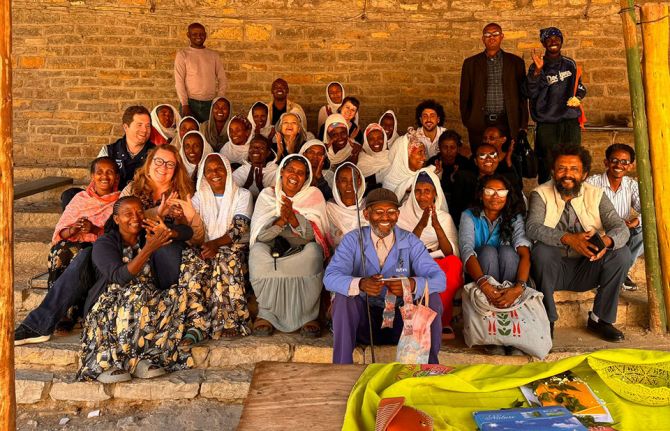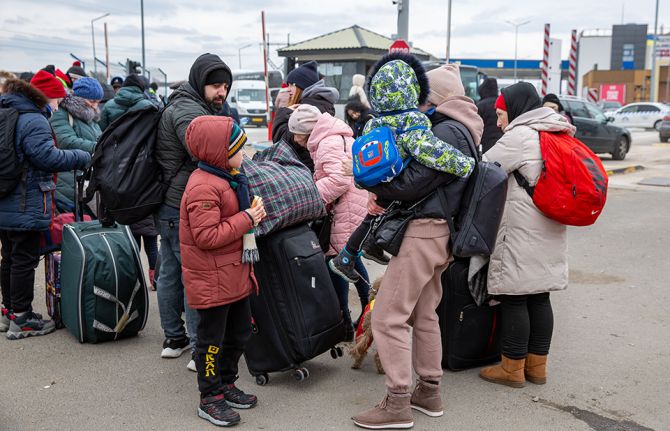
Feature Story
Leaders review progress made on the implementation of the UN Resolution on HIV and Security
26 September 2012
26 September 2012 26 September 2012
L to R: Head of the United Nations Department of Peace Keeping Operations Hervé Ladsous, President of Gabon H.E. Ali Bongo and UNAIDS Executive Director Michel Sidibé during the 67th session of the UN General Assembly in New York. 25 September 2012.
Credit: UNAIDS/B. Hamilton
The President of Gabon H.E. Ali Bongo held a discussion with UNAIDS Executive Director Michel Sidibé and Head of the United Nations Department of Peace Keeping Operations Hervé Ladsous on AIDS and security during the 67th session of the UN General Assembly in New York.
During the discussion the leaders warned of how societal instability can provide a fertile ground for HIV risk and transmission. Reduced accountability, shifting power balances and vulnerabilities become rife, leading to all sorts of abuses, including sexual and gender based violence.
Mr Sidibé thanked President Bongo for his leadership and continued commitment to the issue. "The relationship between HIV and security is crystal clear: Conflicts and post-conflict conditions can exacerbate the spread of HIV and, if left unchecked, threaten international peace and security," he said.
In many settings, widespread sexual violence has been used as a tool of warfare, increasing gender inequalities and contributing to the spread of HIV. In conflict and post-conflict settings, women (including many with children) often confront the choice between starving in devastated local communities or entering refugee camps where rape and sexual violence may be endemic.
The leaders agreed that the UN Security Council has played a leading role in raising awareness of the links between AIDS and security. In 2011, a landmark Security Council Resolution 1983 called for increased efforts by UN Member States to address HIV in peacekeeping missions. It also called for HIV prevention efforts among uniformed services to be aligned with efforts to end sexual violence in conflict and post-conflict settings.
“Before we report back to the UN Security Council in 2013, I will invite leaders and partners to Libreville to review global progress,” said President Bongo.
The relationship between HIV and security is crystal clear: Conflicts and post-conflict conditions can exacerbate the spread of HIV and, if left unchecked, threaten international peace and security
UNAIDS Executive Director Michel Sidibé
Today, HIV is being comprehensively integrated in all United Nations peacekeeping operations. Reaching the nearly 120,000 personnel who currently serve in UN peacekeeping missions not only helps protect their health and well-being, but the peacekeepers also serve as agents of change in surrounding communities and eventually in their home countries.
“We can mitigate the impact of HIV among uniformed services and civilian populations affected by conflict,” said Mr Ladsous. “This is a priority for the UN Department of Peacekeeping Operations,” he added.
UNAIDS and the UN Department of Peacekeeping Operations (DPKO) have been working together for over a decade accumulating considerable knowledge on AIDS and security, identifying best practices as well as documenting both successes and challenges. The collaboration has also leveraged the strengths and expertise of other UN partners such as the United Nations Population Fund (UNFPA), UN Women and the UN Refugee Agency (UNHCR), besides member states, other international organisations and funding entities.
All these collaborative efforts are starting to yield results. Six case studies undertaken in Democratic Republic of the Congo, Timor Leste, Lebanon, Haiti, Republic of South Sudan and Republic of North Sudan indicate concrete progress in addressing HIV and gender-based violence. AIDS programmes are helping address sexual and gender-based violence, increase awareness of the harmful effects of stigma and discrimination, sensitise perpetrators and help convert them into agents of change, and promote integration of human rights protections in national legal and policy frameworks. A joint publication “Securing an AIDS free future: practical lessons about Security and AIDS in conflict and post-conflict settings” produced by UNAIDS and DPKO documenting these efforts was presented to President Bongo during the meeting.



